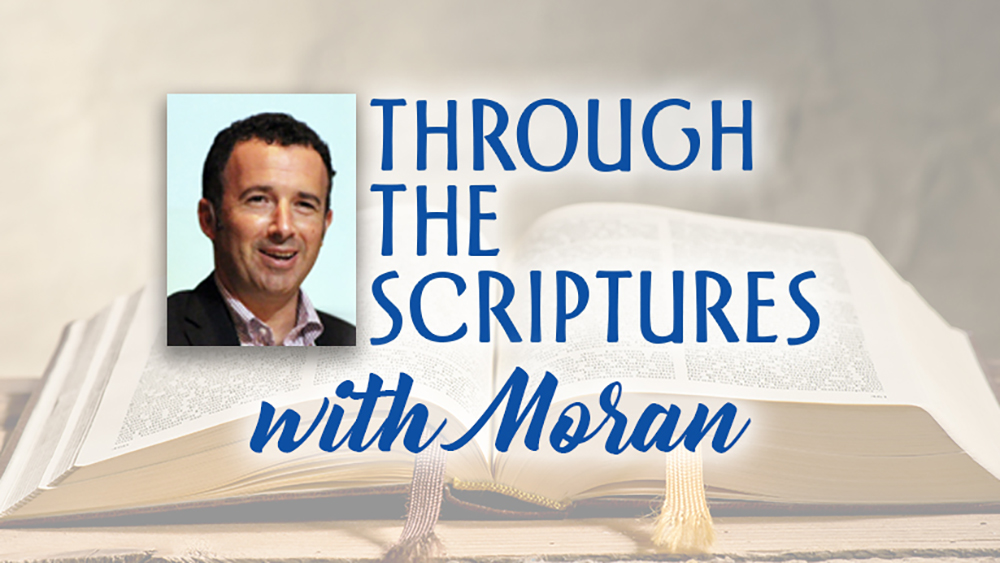
Parashat Mattot (Tribes) & Masei (Tribes and Journeys)
Bamidbar (Numbers) 30:2–32:42 & 33:1–36:13
Haftarah: Jeremiah 2:4–28, 3:4, 4:1–2
In the Parasha, we read of the conclusion of the journey of the children of Israel from Egypt to the point before they entered into the Promised Land (Numbers 33:1-49). We then read:
Then the LORD spoke to Moses in the plains of Moab by the Jordan opposite Jericho, saying, “Speak to the sons of Israel and say to them, ‘When you cross the Jordan into the land of Canaan, you shall drive out all the inhabitants of the land from you, and destroy all their idolatrous sculptures, destroy all their cast metal images, and eliminate all their high places; and you shall inherit the land and live in it, for I have given the land to you to inherit it. You shall maintain the land as an inheritance by lot according to your families; to the larger you shall give more inheritance, and to the smaller you shall give less inheritance. Wherever the lot falls to anyone, that shall be his. You shall pass on land as an inheritance according to the tribes of your fathers. But if you do not drive out the inhabitants of the land from you, then it will come about that those whom you let remain of them will belike thorns in your eyes and like pricks in your sides, and they will trouble you in the land in which you live. And just as I plan to do to them, I will do to you.'”
Numbers 33:50–56
Inheritance is a very important concept in Scripture. It is a picture of the eternal destiny of every believer, our eternal inheritance in the Kingdom. God’s instructions to Israel were very clear regarding the importance of inheriting the Land to which He entrusted them. His instructions also stress the importance of not just driving out those who lived in the land but also to destroy all of their idol worshiping. God commanded that all idol worship be driven out from His Land completely, as He desired it to be wholly devoted to Him. God also gave a very clear warning of judgment if they failed to obey.
In the Haftarah portion from Jeremiah, we read of the continuation of those warnings. Notice what is written about inheritance:
Hear the word of the LORD, house of Jacob, and all the families of the house of Israel. This is what the LORD says:
“What injustice did your fathers find in Me, that they went far from Me,
and walked after emptiness and became empty? They did not say, ‘Where is the Lord
who brought us up out of the land of Egypt, who led us through the wilderness,
through a land of deserts and of pits, through a land of drought and of deep darkness,
through a land that no one crossed and where no person lived?’
I brought you into the fruitful land to eat its fruit and its good things.
But you came and defiled My land, and you made My inheritance an abomination.
The priests did not say, ‘Where is the LORD?’ and those who handle the Law did not know Me; the rulers also revolted against Me, and the prophets prophesied by Baal and walked after things that were of no benefit.“Therefore I will still contend with you,” declares the LORD,
“And I will contend with your sons’ sons.”
Jeremiah 2:4–9
When reading these words from Jeremiah, one can jump to conclusions regarding the harsh judgment that God spoke over Israel since they disobeyed Him. Not only did the children of Israel not do as God had instructed, but they also turned their backs on Him and worshiped false gods. One might conclude that Israel's disobedience over and over again caused God to turn His back on them forever and totally reject Israel (the Jewish people). Some would go even further and say that God has chosen a different people completely — the Church — over Israel.
Let me be very clear that anyone who teaches this is a false teacher. I know that may sound harsh, but the truth is that if anyone picks and chooses to only tell part of the story, and not the entire story, that person is rewriting God's Word. And rewriting God's Word has severe consequences! God’s Word is a letter to humankind, and we cannot only read parts of it because we will reach different conclusions other than the true ones. Yes, in the book of Jeremiah we find a lot of judgment, but we also find a great deal of grace! The irony is that we learn to appreciate this grace more deeply once we truly understand the judgment that is coming.
I am so grateful that God's grace is not dependent on my — or anyone else's — behavior. I am so grateful that God's judgment on Israel is not the end of the story:
“If you will return, Israel,” declares the LORD, “Then you should return to Me.
And if you will put away your detestable things from My presence, and will not waver,
And if you will swear, ‘As the LORD lives,’ In truth, in justice, and in righteousness;
then the nations will bless themselves in Him, and in Him they will boast.”
Jeremiah 4:1–2
Shabbat Shalom,
Moran
Check out previous blogs on this parashah!
Share this Post

One Comment on “The End of the Story?”
Me gusta leer las escrituras y explicaciones que dan. Les agradezco sus mensajes y siento no poder hacer los cursos . Saludos